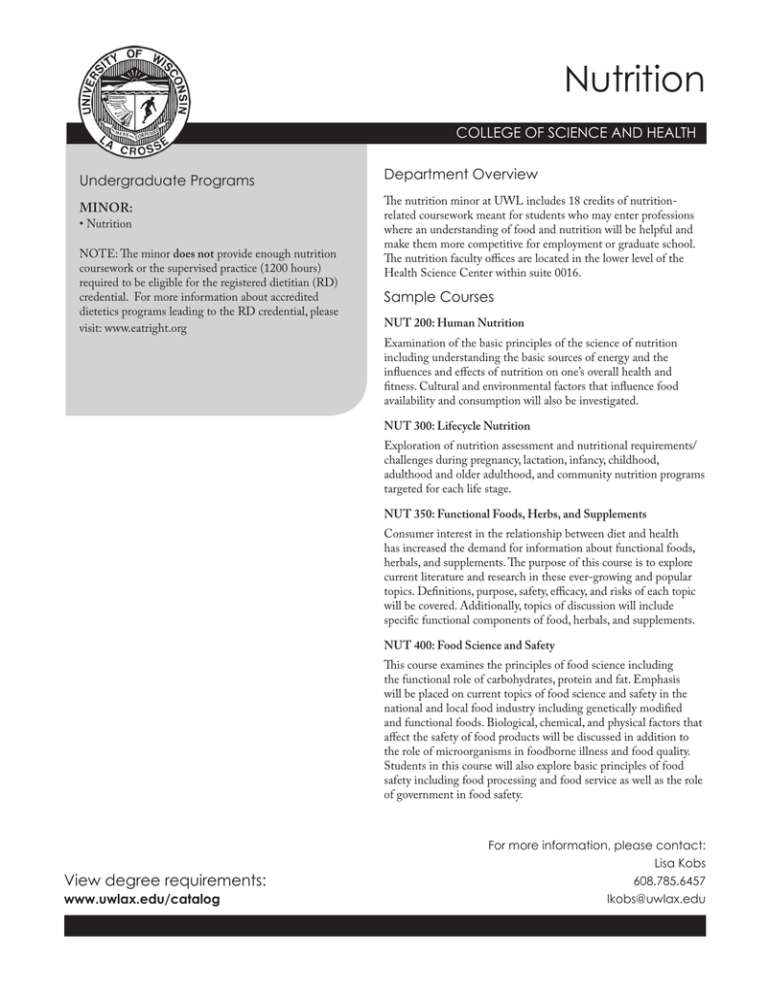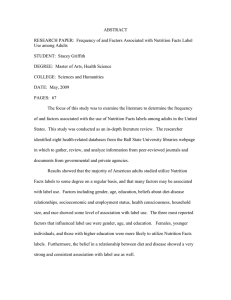Nutrition COLLEGE OF SCIENCE AND HEALTH Department Overview Undergraduate Programs
advertisement

Nutrition COLLEGE OF SCIENCE AND HEALTH Undergraduate Programs MINOR: • Nutrition NOTE: The minor does not provide enough nutrition coursework or the supervised practice (1200 hours) required to be eligible for the registered dietitian (RD) credential. For more information about accredited dietetics programs leading to the RD credential, please visit: www.eatright.org Department Overview The nutrition minor at UWL includes 18 credits of nutritionrelated coursework meant for students who may enter professions where an understanding of food and nutrition will be helpful and make them more competitive for employment or graduate school. The nutrition faculty offices are located in the lower level of the Health Science Center within suite 0016. Sample Courses NUT 200: Human Nutrition Examination of the basic principles of the science of nutrition including understanding the basic sources of energy and the influences and effects of nutrition on one’s overall health and fitness. Cultural and environmental factors that influence food availability and consumption will also be investigated. NUT 300: Lifecycle Nutrition Exploration of nutrition assessment and nutritional requirements/ challenges during pregnancy, lactation, infancy, childhood, adulthood and older adulthood, and community nutrition programs targeted for each life stage. NUT 350: Functional Foods, Herbs, and Supplements Consumer interest in the relationship between diet and health has increased the demand for information about functional foods, herbals, and supplements. The purpose of this course is to explore current literature and research in these ever-growing and popular topics. Definitions, purpose, safety, efficacy, and risks of each topic will be covered. Additionally, topics of discussion will include specific functional components of food, herbals, and supplements. NUT 400: Food Science and Safety This course examines the principles of food science including the functional role of carbohydrates, protein and fat. Emphasis will be placed on current topics of food science and safety in the national and local food industry including genetically modified and functional foods. Biological, chemical, and physical factors that affect the safety of food products will be discussed in addition to the role of microorganisms in foodborne illness and food quality. Students in this course will also explore basic principles of food safety including food processing and food service as well as the role of government in food safety. View degree requirements: www.uwlax.edu/catalog For more information, please contact: Lisa Kobs 608.785.6457 lkobs@uwlax.edu


